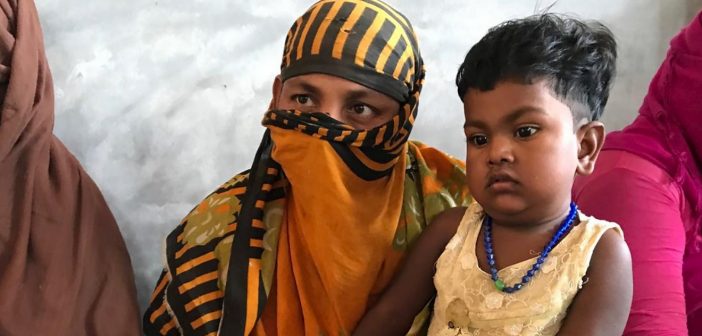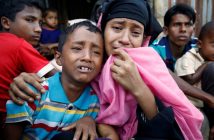A skills programme promotes self-reliance and aims to transform the lives of rural women in south-eastern Bangladesh.
In a bamboo thatched women’s centre in Kutupalong, more than a dozen Rohingya refugees are sitting closely together on mats and concentrating so fiercely on their sewing that barely a sound can be heard.
Only the encouraging murmurs of a trainer who checks on their progress break the silence of the focused women.
They are mainly widows or other women heading their households alone. Ranging in age from 18 to 40, most had never learned how to sew before. After just a few weeks participating in an innovative training programme, they are now working on delicate embroidery for flower designs, using a mix of different stitches and colourful threads.
Twenty-six-year-old Mushida, whose two year-old daughter, Sharmin, curiously watches her at work, has longed for such an opportunity: “My husband is not able to find any way to earn money here and we have many problems.”
“I’m very happy to be part of this,” she adds. “I am more confident that we will have a better future.”



